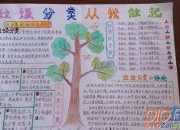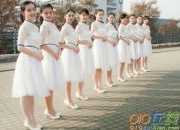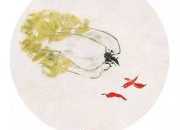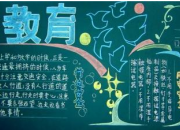英语作文写作的需要背诵的部分(5)
时间:2021-08-31But the pressure on students is severe. They are truly torn. One part of them feels obliged to fulfill their parents’ expectations; after all, their parents are older and presumably wiser. Another part tells them that the expectations that are right for their parents are not right for them.
I know a student who wants to be an artist. She is very obviously an artist and will be a good one—she has already had several modest local exhibits. Meanwhile she is growing as a well-round person and taking humanistic subjects that will enrich the inner resources out of which her art will grow. But her father is strongly opposed. He thinks that an artist is a “dumb” thing to be. The student vacillates and tries to please everybody. She keeps up with her art somewhat furtively and takes some of the “dumb” courses her father wants her to take—at least they are dumb courses for her. She is a free spirit on a campus of tense students—no small achievement in it—and she deserves to follow her muse.
Peer pressure and self-induced pressure are also intertwined, and they begin almost at the beginning of freshman year.
“I had a freshman student I’ll call Linda,” one dean told me, “who came in and said she was under terrible pressure because her roommate, Barbara, was much brighter and studied all the time. I could not tell her that Barbara had come in two hours earlier to say the same thing about Linda.”
The story is almost funny—except that it is not. It is symptomatic of all the pressure put together. When every student thinks every other student is working harder and doing better, the only solution is to study harder still. I see students going off to the library every night after dinner and coming back when it closes at midnight. I wish they would sometimes forget about their peers and go to a movie. I hear the clacking of typewriters in the hours before dawn. I see the tension in their eyes when exams are approaching and papers are due: “Will I get everything done?”
Probably they won’t. They will get blocked. They will sleep. They will oversleep. They will bug out.
Part of the problem is that they are expected to do. A professor will assign five page papers. Several students will start writing ten page papers to impress him. Then more students will write ten page papers, and a few will raise the ante to fifteen. Pity the poor student who is still just doing the assignment.
“Once you have twenty or thirty percent of the student population deliberately overexerting,” one dean points out, “It’s bad for everybody. When a teacher gets more and more effort from his class, the student who is doing normal work can be perceived as not doing well. The tactic work, psychologically.”
Why cannot the professor just cut back and not accept longer papers? He can, and he probably will. But by then the term will be half over and the damage done. Grade fever is highly contagious and not easily reversed. Besides, the professor’s main concern is with his course. He knows his students only in relation to the course and does not know that they are also overexerting in their other courses. Nor is it really his business. He did not sign up for dealing with the student as a whole person and with all the emotional baggage the student brought along from home. That’s what deans, masters, chaplains, and psychiatrists are for.
To some extent this is nothing new: a certain number of professors have always been self-contained islands of scholarship and shyness, more comfortable with books than with people. But the new pauperism has widened the gap still further, for professors who actually like to spend time with students do not have as much time to spend. They are also overexerting. If they are young, they are busy trying to publish in order not to perish, hanging by their figure nails onto a shrinking profession.
If they are old and tenured, they are buried under the duties of administering departments—as departmental chairmen or members of committees—that have been thinned out by the budgetary axe.
Ultimately it will be the students’ own business to break the circles in which they are trapped. They are too young to be prisoners of their parents’ dreams and their classmates’ fears. They must be jolted into believing into themselves as unique men and women who have the power to shape their own future.
“Violence is being done to the undergraduate experience,” says Carlos Hortas. “College should be open-ended: at the end it should open many, many roads. Instead, students are choosing their goal in advance, and their choices narrow as they go along. It’s almost as if they think that the country has been codified in the type of jobs that exist-that they’ve got to fit into certain slots. Therefore, fit into the best paying slot.”
“They ought to take chances. Not taking chances will lead to life of colorless mediocrity. They’ll be comfortable. But something in the spirit will be missing.”
I have painted too drab a portrait of today’s students, making them seem a solemn lot. That is only half of their story; if they were so dreary I wouldn’t so thoroughly enjoy their company. The other half is that they are easy to like. They are quick to laugh and to offer friendship. They are not introverts. They are usually kind and are more considerate of one another than any student generation I have known.
Nor are they so obsessed with their studies that they avoid sports and extracurricular activities. On the contrary, they juggle their crowded hours to play on a variety of teams, perform with musical and dramatic groups, and write for campus publications. But this in turn is one more cause of anxiety. There are too many choices. Academically, they have 1,300 courses to select from; outside class they have to decide how much spare time they can spare and how to spend it.
This means that they engage in fewer extracurricular pursuits than their predecessors did. If they want to row on the crew and play in the symphony they will eliminate one; in the ‘60s they would have done both. They also tend to choose activities that are self-limiting. Drama, for instance, is flourishing in all twelve of Yale’s residential colleges, as it never has before. Students hurl themselves into these productions—as actors, directors, carpenters, and technicians—with a dedication to create the best possible play, knowing that the day will come when the run will end and they can get back to their studies.
They also cannot afford to be the willing slave of organizations like the Yale Daily News. Last spring at the one-hundredth anniversary banquet of that paper—who’s past chairmen include such once and future kings as Potter Stewart, Kingman Brewster, and William F. Buckley, Jr.—much was made of the fact that the editorial staff used to be small and totally committed and that “newsies” routinely worked fifty hours a week. In effect they belonged to a club; Newsies is how they defined themselves at Yale. Today’s students will one or two articles a week, when he can, and he defines himself as a student. I’ve never heard the word Newsie except at the banquet.
If I have described the modern undergraduate primarily as a driven creature who is largely ignoring the blithe spirit inside who keeps trying to come out and play, it’s because that’s where the crunch is, not only at Yale but throughout American education. It’s why I think we should all be worried about the values that are nurturing a generation so fearful of risk and so goal-obsessed at such an early age.











